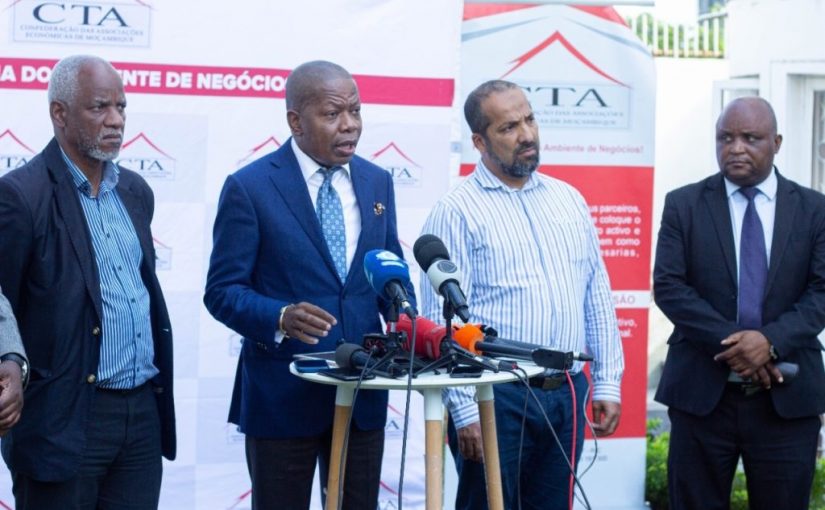Mozambique: LAM claims improvement in its finances - AIM | Watch
Mozambique: Businesses demand more incentives from government in the face of price rises

Photo: CTA
The Confederation of Economic Associations of Mozambique (CTA) says business is being strangled by the current wave of price increases, especially for fuel and wheat, both inside and outside the country.
Two days after the fuel price readjustment, the CTA called the press to demand more ‘cushioning’ from Filipe Nyusi’s government, association president Agostinho Vuma remarking that the private sector had recently been exposed to three simultaneous shocks: rising food prices, rising fuel prices, and restrictive financial conditions.
Food crisis
The imminent food crisis resulting from the conflict between Russia and Ukraine had sparked a wave of protectionism, Vuma said, with countries taking measures to “manage their food security”.
“In the case of wheat, three of the ten largest suppliers to Mozambique, namely Russia, Ukraine and Argentina, have already banned wheat exports to Mozambique worth US$77 million, or 36% of the total wheat imported. This means in effect that 36% of Mozambique’s wheat supply is cut off, forcing the country into a relentless search for alternative sources,” Agostinho Vuma explained.
In view of this scenario, and from the point of view of measures to be taken in the short term to address the wheat supply issue, the CTA was urging the government and wheat producing countries to negotiate agreements for the supply of wheat and other products.
In the medium term, the CTA proposes the promotion of partnerships for domestic cereal production and the development of the cereal value chain in Mozambique, associated with the incentives and facilities provided by the Sustenta project.
Fuels
The CTA president took the opportunity to reiterate that gas stations are charging prices that do not correspond to reality.
Despite the incentives in this sector, Vuma stressed that the government was not paying compensation to gas stations, so oil companies “prefer to minimise the stock sold in order to minimise the loss”. As a temporary measure, the CTA proposes that transport associations play a role in promoting the creation of depots at terminals for collective purchase of fuel from the distributor, thus benefiting from a lower price. According to Vuma, this would allow transporters to buy the fuel at distributor prices, which are lower than the retail price.
“In the package of measures, the fiscal issue cannot be left behind, since VAT has a significant weight in the structure of the final price of fuel,” Vuma also pointed out. “On the one hand, when importing fuel, VAT ends up having a weight of around 11% in the final price of a litre of fuel. As for the distributor, VAT has a weight of around 13% in the final price. Therefore, there is room here, through fiscal measures, to minimise the rampant rise in prices and control the rise in the cost of living in the short term,” he said.
Restrictive credit conditions
As for credit, the CTA president explained that financing conditions in Mozambique were increasingly restrictive, and may work against companies trying to respond to the imminent food crisis.
Data on the distribution of credit presented by Vuma indicate that only about 16% of bank loans in the national financial system go to the primary and secondary sectors, with only about 2% of credit going to agriculture. “Therefore, it is urgent to find a solution and/or alternative financing options not only to support the business recovery, but also to offer instruments to respond to current needs,” Agostinho Vuma concluded.
By Evaristo Chilingue












Leave a Reply
Be the First to Comment!
You must be logged in to post a comment.
You must be logged in to post a comment.